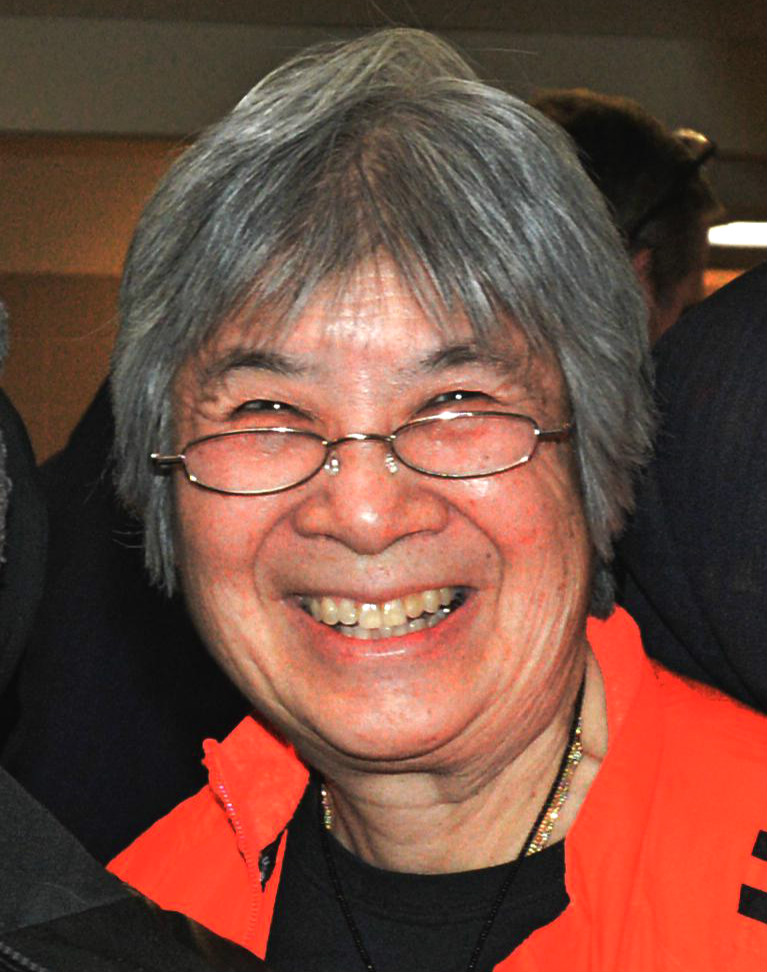Wednesday, May 6, 2020
For Immediate Release
Terry Kwan, Supporter of STEM Education
Through Teaching and Volunteerism
Quincy, MA – Science educator Terry Kwan has been a board member of the Wade Institute for Science Education for more than twenty years. She brings experience in classroom teaching, science supervision, publishing, and school-community activism. By attending Wade Institute’s professional development programs, she observes work with teachers first-hand and gains a better understanding of what each partner brings to programs. Terry uses her program observations to support the Wade Institute’s goal of advancing inquiry-based learning by connecting people, especially non-educators, to the mission of the organization.
Terry’s Experience in Science Education
In the late 1950’s the Soviet Union launched Sputnik, the world’s first earth-orbiting satellite. The shock of not being first to explore space sparked a serious look at science education in the United States and resulted in the switch from read-about science instruction to much of the inquiry-based science strategies that the Wade Institute so strongly promotes. National Science Foundation (NSF) grants supported much of the new curriculum development and later enabled organizations like the Wade Institute to create hands-on, minds-on, STEM professional learning opportunities for educators.

Terry Kwan, Wade Institute Board Member
Following graduation from Binghamton University in 1967, Terry accepted a position teaching 8th grade science in an upstate New York junior high school. At the time, she had not taken any education courses but selected the position because she was impressed with the NSF-funded programs the school utilized and thought that the staff would be wonderfully supportive mentors. The experience was so inspiring that she resigned the position at the end of the year and spent the next 18 months obtaining her Masters of Education and New York state science certification from Hofstra University.
She next went to work in Newton, MA, where much of the cutting-edge curricula created with NSF funding was in use. There, Terry learned about Elementary Science Study (ESS) materials developed by the Education Development Center (EDC) and connected with inquiry-based science curriculum that engaged students in science starting in kindergarten. Terry emphasizes the importance of student-driven, inquiry-based learning, beginning with the youngest children saying, “I think kids are naturally curious. Effective science education builds on this desire to observe, explore, and ask questions.”
A newly-created K-8 Science Supervisor position in Brookline was a perfect fit for Terry for the next nine years. However, the 1982 Proposition 2 ½ tax-cutting measure resulted in much upheaval in Massachusetts including administrative cuts in order to save classroom positions. Terry saw this as an opportunity to push forward education developments. So after spending a year with a text-book publisher in Illinois, Terry returned to Massachusetts where she worked on first-generation linguistic software (i.e., spelling correctors in English and other world languages) at Houghton Mifflin. It was there that Terry’s supervisor introduced her to Emily V. “Paddy” Wade and MITS, Inc. (now the Wade Institute), the organization Paddy founded to connect informal science educators to classroom teachers in support of hands-on, minds-on, inquiry-based science instruction.
Thinking back on her time on the Board and considering the current educational landscape, Terry says, “If anything, the Wade Institute has become even more important since the relentless push for high-stakes standardized testing has displaced time devoted to careful observations, experimentation, and problem-solving. Teachers, once again, need to be empowered to promote true science inquiry, where the solution can only stand until new evidence contradicts the prevailing theory.” Due to her work with cutting-edge curricula throughout her career in science education, Terry brings her critical eye for effective STEM education tools and techniques to the Wade Institute Board. Her enthusiasm for science education is so extensive that she excels at exciting even non-educators to take an interest in inquiry-based, hands-on, minds-on STEM education and to support teachers through professional development provided by the Wade Institute for Science Education.
###
The Wade Institute for Science Education specializes in providing inquiry-based, hands-on, minds-on, science, technology and engineering professional development for K-12 teachers and informal educators. For more information, visit www.wadeinstitutema.org or call 617-328-1515.
